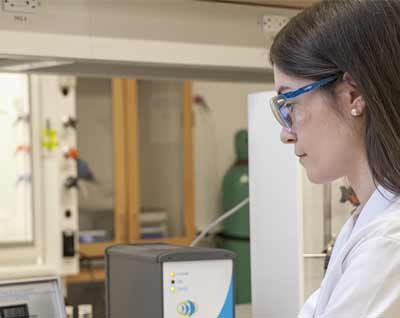An apparatus consisting of two (or more) electrodes which, while separated from each other spatially, are in electrical contact with each other via a current path passing through one (or more) conductive media with which the electrodes are in contact.
-
Glossary: Electrochemical Cell
Read More -
Glossary: Electrode
Read MoreAn electrode is one of the external terminals on an electrochemical cell at which electrical contact with the cell can be made. At a minimum, an electrochemical cell has two electrodes, often referred to as the anode and the cathode, which are the connection points at which an external current or voltage source can be connected to the cell.
An electrode is fabricated from a conductive material, such as carbon or metal, which provides a path for current to flow into (or out of) an electrochemical cell. Inside the electrochemical cell, the surface of the electrode is in direct contact with some internal conductive media (often a salt solution or conductive gel) which provides a current path between the electrode and at least one other electrode.
-
Glossary: Anode
Read More
The anode is the particular electrode in an electrochemical cell at which an oxidation process is occurring.
Related Terms:
cathode, anodic current -
Glossary: Cathode
Read More
The cathode is the particular electrode in an electrochemical cell at which a reduction process is occurring.
Related Terms:
anode, cathodic current -
Glossary: Electroanalytical Cell
Read MoreA electroanalytical cell is an electrochemical cell designed for making an analytical measurement, such as measuring the concentration of an analyte in a solution or measuring the rate constant of a reaction at an electrode surface.



